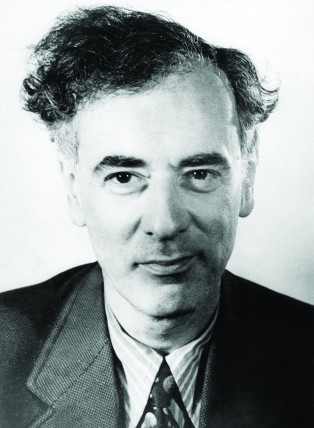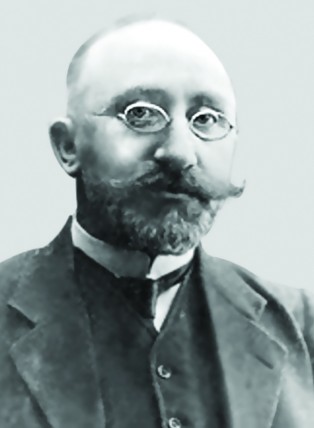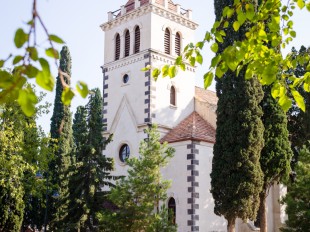Historically, Jews were widespread throughout Europe, but there have been few places in the world where they could live without fear of persecution. Thousands of Jews experienced brutal antisemitism in Europe in the Middle Ages, escaping massacres and repressions in Spain, Portugal, France, Hungary, Poland and elsewhere to take refuge in the Ottoman Empire. But anti-semitism continued into the modern era and existed more or less in all 19th-century European societies.
The great political and cultural upheavals of the 19th and 20th centuries had particular repercussions for Jews in Eastern and Southeastern Europe before World War II. As a result of the partitions of Poland in the 1790s, which brought large numbers of Jews under Russian rule, German unification and the collapse of the multinational Ottoman Empire, Jews in Eastern and Southeastern Europe were increasingly confronted with ethnic and economic crises.
Influenced by nationalism, those who broke away from the Ottoman Empire founded their own national states and were seen as potential agents of antisemitism. Moreover, the scientific and industrial revolutions in Europe bred a new manifestation of anti-semitism, based as much upon race as upon religion, culminating in the horrors of the Nazi extermination camps of World War II.
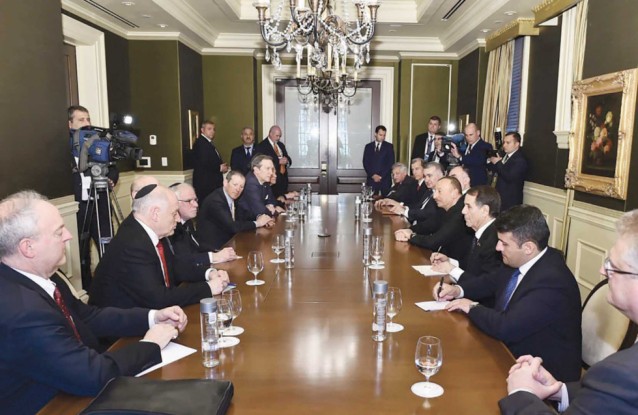 President Ilham Aliyev meeting with the leaders of American Jewish organisations on 31 March 2016. Photo: Azertaj
President Ilham Aliyev meeting with the leaders of American Jewish organisations on 31 March 2016. Photo: Azertaj
Jewish safe haven
Perhaps one of the few places in the world where for centuries people of different religious backgrounds have peacefully coexisted is the territory of modern-day Azerbaijan. The country’s religious pluralism, a result of a favourable conjuncture of history and its position at the crossroads of strategic and trade routes, has led to a great popular tolerance towards peoples of other faiths, as well as a culture of hospitality and assimilation of different religious traditions.
One of the multiple ethnic groups who have benefitted from such coexistence are Jewish communities in Azerbaijan. Jews have lived in Azerbaijan for thousands of years; it’s a unique place where they have always felt themselves in a safe and friendly environment. When the first independent Republic of Azerbaijan was proclaimed on 28 May 1918, Jews actively participated in the political life of the young Azerbaijan Democratic Republic. During this short-lived, first democratic republic in the East, the Azerbaijani government was not short of Jewish politicians. Notably, members of the parliament included Moisey Gukhman, Konstantin Lisgar who became Minister of Food Provisions and Dr Yevsei Gindes who was Minister of Health.
Azerbaijanis are very proud of their many Jewish fellow countrymen who brought fame and honour to their homeland. Among them was the Baku-born Jew Lev Landau (1908-1968) who won the Nobel Prize. Lev Landau was a precocious student who received his school graduation certificate at the age of 12. First he went to Baku Economic College as he was too young for university, but then at the age of 14 Landau entered Azerbaijan State University. He was admitted to two faculties (physics and maths, and chemistry) in the same year, but gave preference to physics. For his contributions to nuclear physics, Lev Landau was awarded the Nobel Prize in 1962.
Another proud member of Azerbaijan’s Jewish community is Albert Agarunov, who died defending Azerbaijan’s territorial integrity from Armenian aggression after the collapse of the USSR in 1991. Agarunov was awarded the title of National Hero of Azerbaijan and buried at Martyr’s Alley in May 1992. This brave, young man was devoted to his country and died pushing his courage and determination to the limit. When interviewed by Chingiz Mustafayev, the famous Azerbaijani journalist who also died heroically in the Karabakh war, Agarunov exclaimed the following: I’m fighting for my homeland where I was born and where I grew up. My wish is to restore peace and freedom to the territory of sovereign Azerbaijan.
Azerbaijani-Israeli kinship
Today 's friendly consanguinity between Azerbaijan and Israel is built upon centuries of shared Jewish-Azerbaijani interrelations. Israel recognized the independence of the Republic of Azerbaijan very shortly after the official dissolution of the Soviet Union in 1991. Without doubt, the Jewish community of Azerbaijan plays a significant role in maintaining and developing bilateral relations but, living in Israel, Jews from Azerbaijan also help to bridge the two countries. The historical memory of amicable treatment, popular acceptance and an absence of antisemitism even today affect the perceptions and dispositions of foreign policy elites both in Israel and Azerbaijan.
This perception is also shared by the organized American Jewish community, which is influential in many aspects of American foreign policy. After Azerbaijan’s independence, American Jewish organizations regularly visited this young country and had meetings with government officials and Jewish community members, which served as a good opportunity for conducting a mutual exchange of views and contributing to the strengthening of cooperation. These meetings, of course, contribute to the development of both Azerbaijan-US and Azerbaijan-Israel cooperation, valuing Azerbaijan as a reliable partner, highlighting Jewish organizations’ contributions to these ties.
The relations between Israel and Azerbaijan are developing in many spheres based on the solid foundations of a strategic partnership. Bilateral relations between the two countries continue to grow steadily with success in important areas, such as energy, agriculture, technology and military-strategic cooperation. Both sides welcome further expansion not only for political and strategic cooperation, but also to enhance cultural, educational and touristic exchanges.
It is not only the future prospects of the two nations that brings about a strong bond, but the memories of the past make it ever so stronger. Speaking at the UN General Assembly on the International Day of Remembrance of the Holocaust, Israeli President Reuven Rivlin spoke about the Khojaly tragedy as one of the acts of genocide of the recent past. A garden in memory of the victims of the massacre in Khojaly was opened in the Chaim Weizmann forest in Israel in February 2016. 613 trees were planted in memory of all those who were slaughtered by Armenian armed forces during the tragedy. There is nothing surprising about the fact that Israelis commemorate the victims of Khojaly, after all, no one can relate better to the grieving of innocent victims, whose death is a result of nothing but xenophobia.
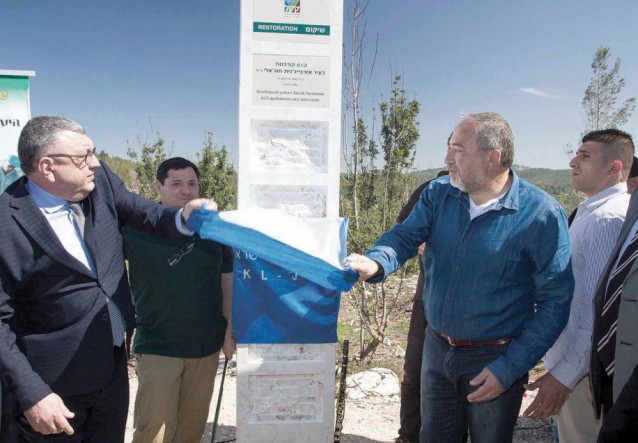 Unveiling the garden in memory of the Khojaly tragedy in the Chaim Weizmann forest in Israel in February 2016
Unveiling the garden in memory of the Khojaly tragedy in the Chaim Weizmann forest in Israel in February 2016
Cooperation in the energy sphere is a priority of Azerbaijani-Israeli economic relations. Tel-Aviv is one of the main importers of Azerbaijani oil. Israel and the U.S. Jewish lobby rendered comprehensive support to official Baku to implement the project to build the main Baku-Tbilisi-Ceyhan (BTC) export oil pipeline.
Sangachal visits
During high-level visits of Jewish delegations to Baku, Azerbaijani government officials include familiarisation trips to Azerbaijan’s most important strategic asset - the Sangachal oil and gas terminal. I have been privileged to host these VIP delegations at the Sangachal terminal, the BP-operated largest hydrocarbon processing facility worldwide.
One memorable trip from this series was the visit to Sangachal of Israeli national infrastructure minister Benjamin Ben-Eliezer in June 2006. The Minister highlighted Azerbaijan’s importance as a big player in providing energy security for Europe and stressed that the new oil transportation system from Azerbaijan through Georgia and Turkey to the Mediterranean port Ceyhan would make it possible to deliver oil to Israel to meet the country’s needs for fuel. He was very optimistic about the BTC project, which in future could provide an opportunity to export Azerbaijani oil via the Israeli Eilat-Ashkelon oil pipeline to other countries in the Far East.
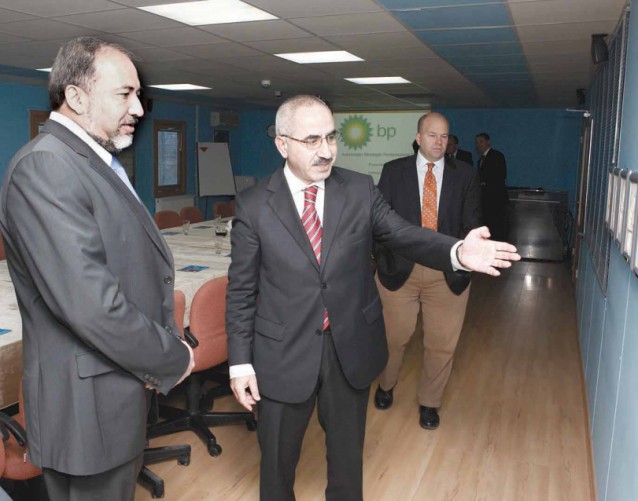 The author, Guivami Rahimli (right), briefing Israeli statesman Avigdor Lieberman on Sangachal terminal operations. Photo: BP
The author, Guivami Rahimli (right), briefing Israeli statesman Avigdor Lieberman on Sangachal terminal operations. Photo: BP
Another important visit that I recall distinctly was by Avigdor Lieberman, who was then Deputy Prime Minister and Minister of Foreign Affairs. Having first entered the Knesset in 1999 and since served in various top positions, today he is one of the most powerful political figures in Israel. He currently serves as Minister of Defense, the second most important cabinet post behind the prime minister, and also heads the Israel-Azerbaijan Inter-Parliamentary Friendship Group. Lieberman is an advocate of expanding relations with Azerbaijan and has hugely contributed to bilateral developments. The visit was a great success and gave the guest a real flavour how we run such a complex facility and pipeline operations, which also play an important role in supplying demands of Israel in crude oil.
Azerbaijan has a unique model for coexistence, giving a great example to our divisive world in the current global political climate. The Republic of Azerbaijan is a role model for other countries and it has the recipe for genuine pluralism that all nations can learn from. The Azerbaijani people are proud of their pluralism and willingness to embrace peoples’ differences.
About the author: Guivami Rahimli joined BP in 1995 as a government relations expert. Since then he has held various managerial positions and currently serves as Senior Government Affairs Advisor for BP Azerbaijan, Georgia and Turkey region. He is also an associate professor at the faculty of international relations at Baku State University, lecturing in energy security and multilateral and regional diplomacy.
